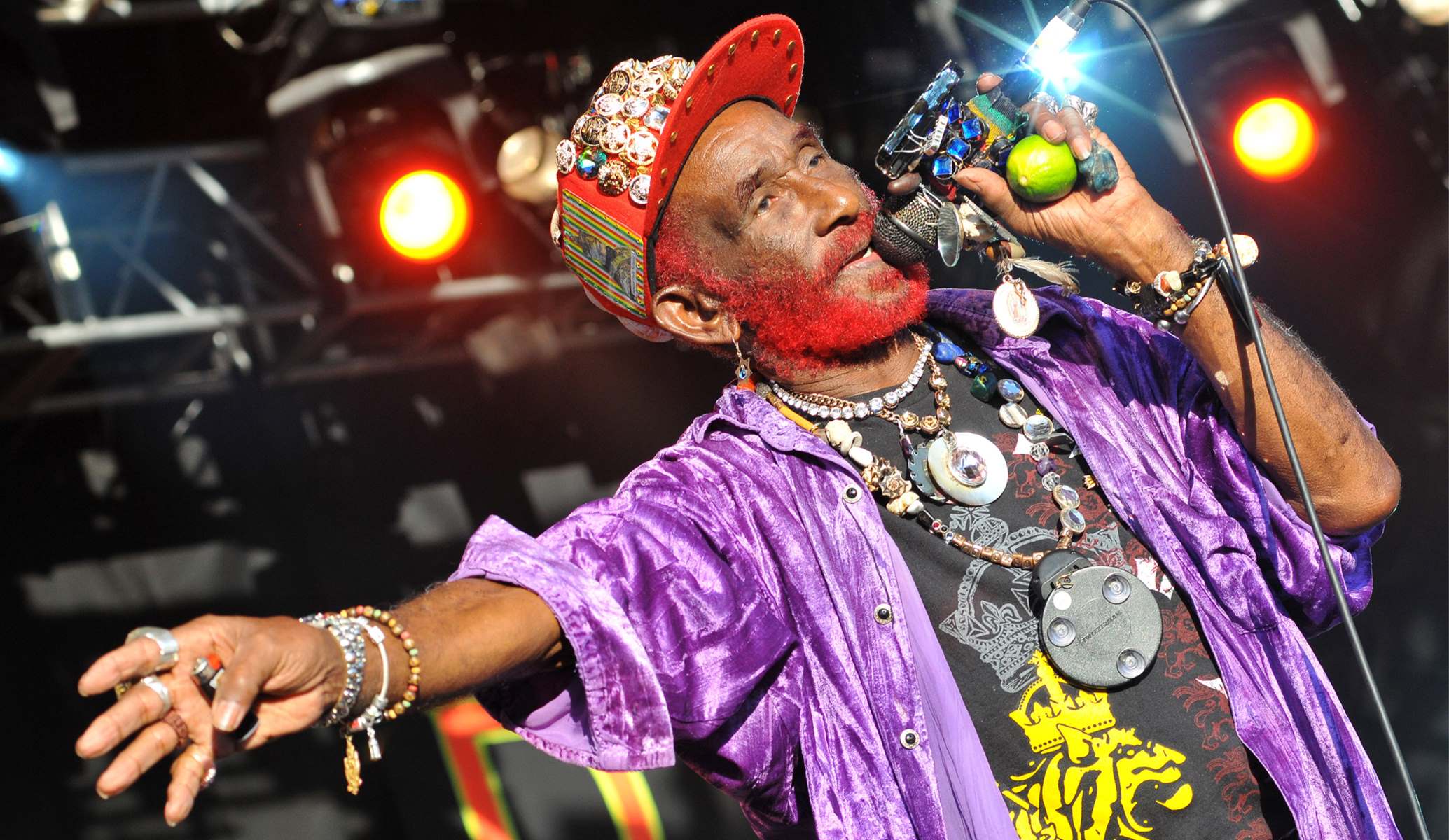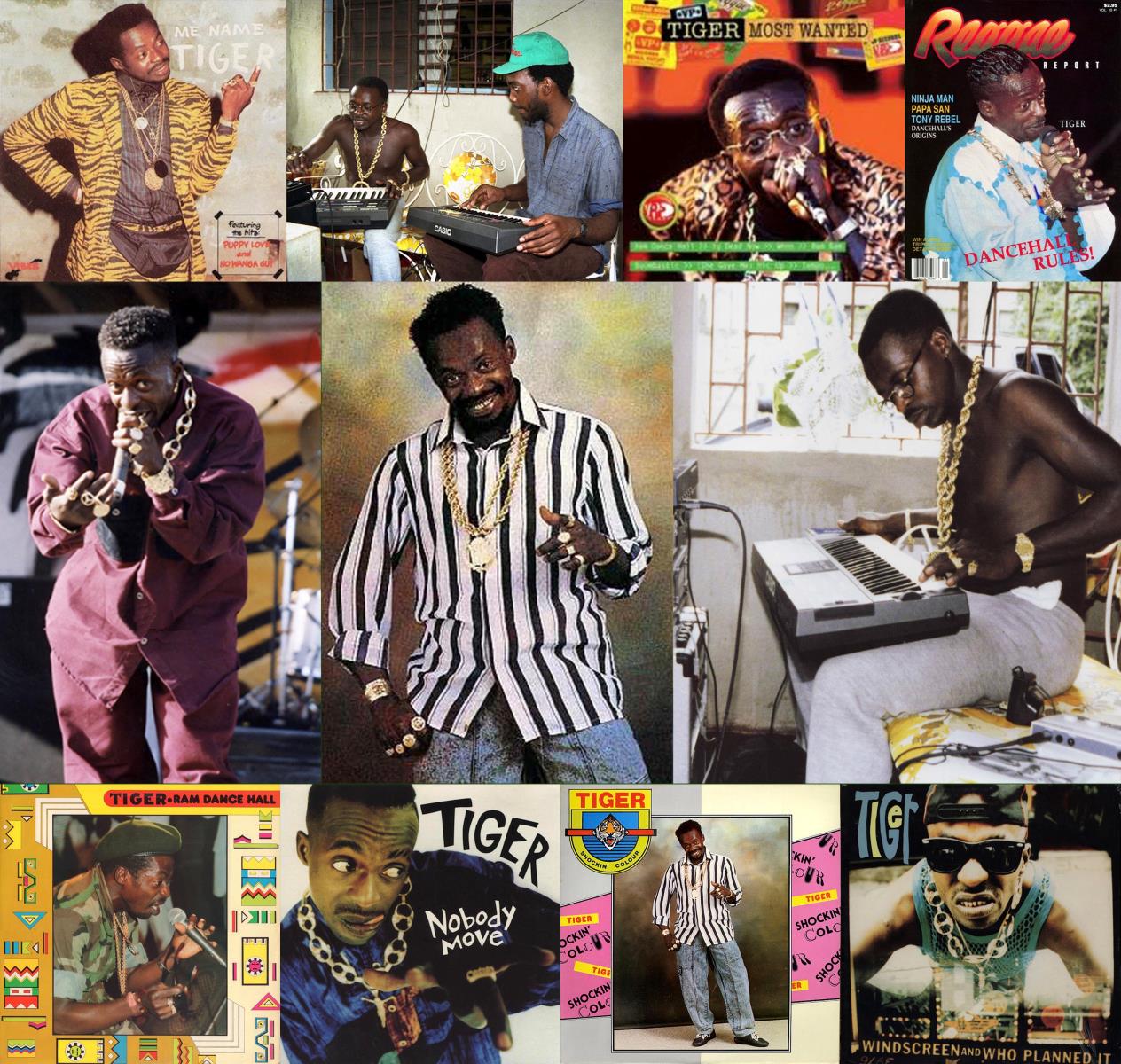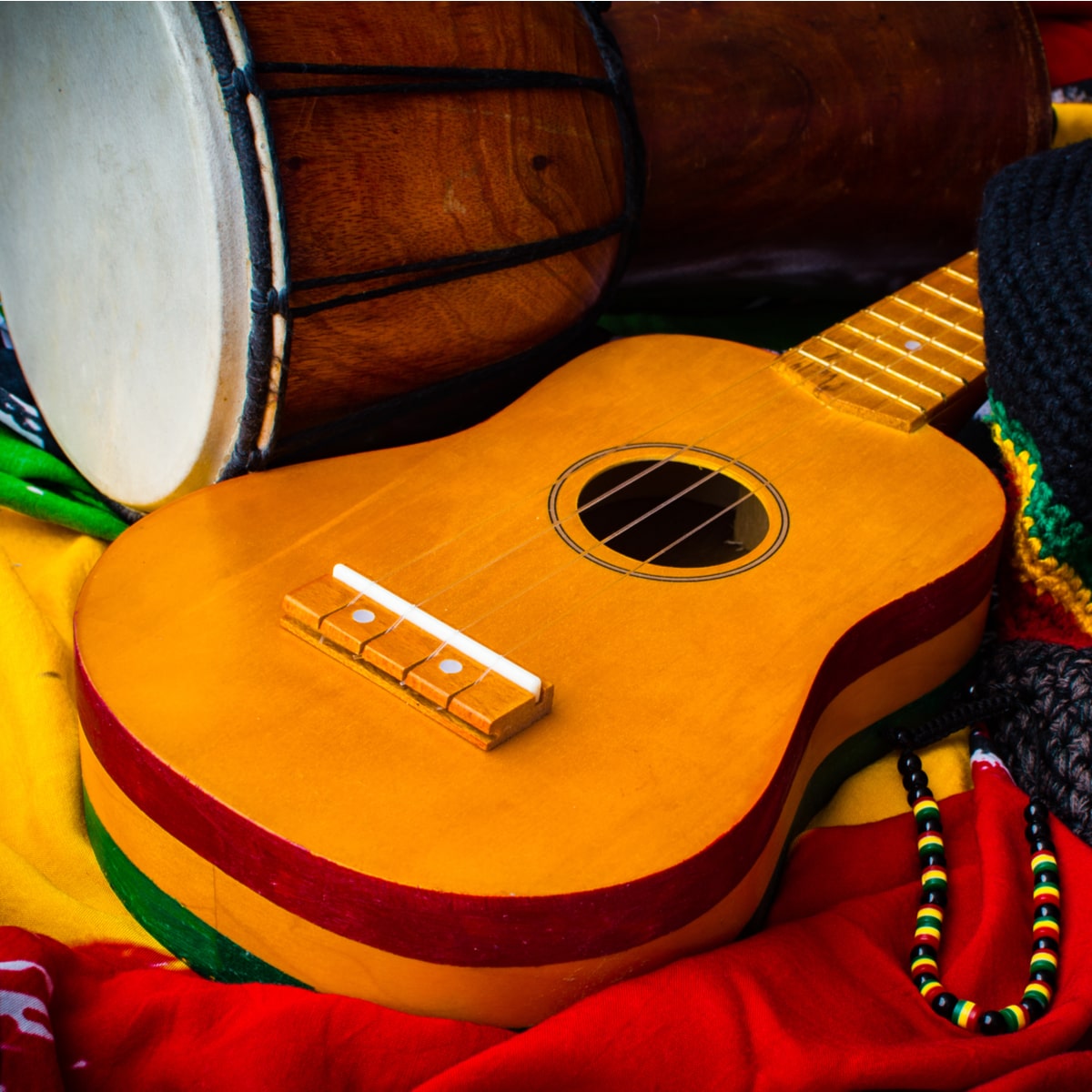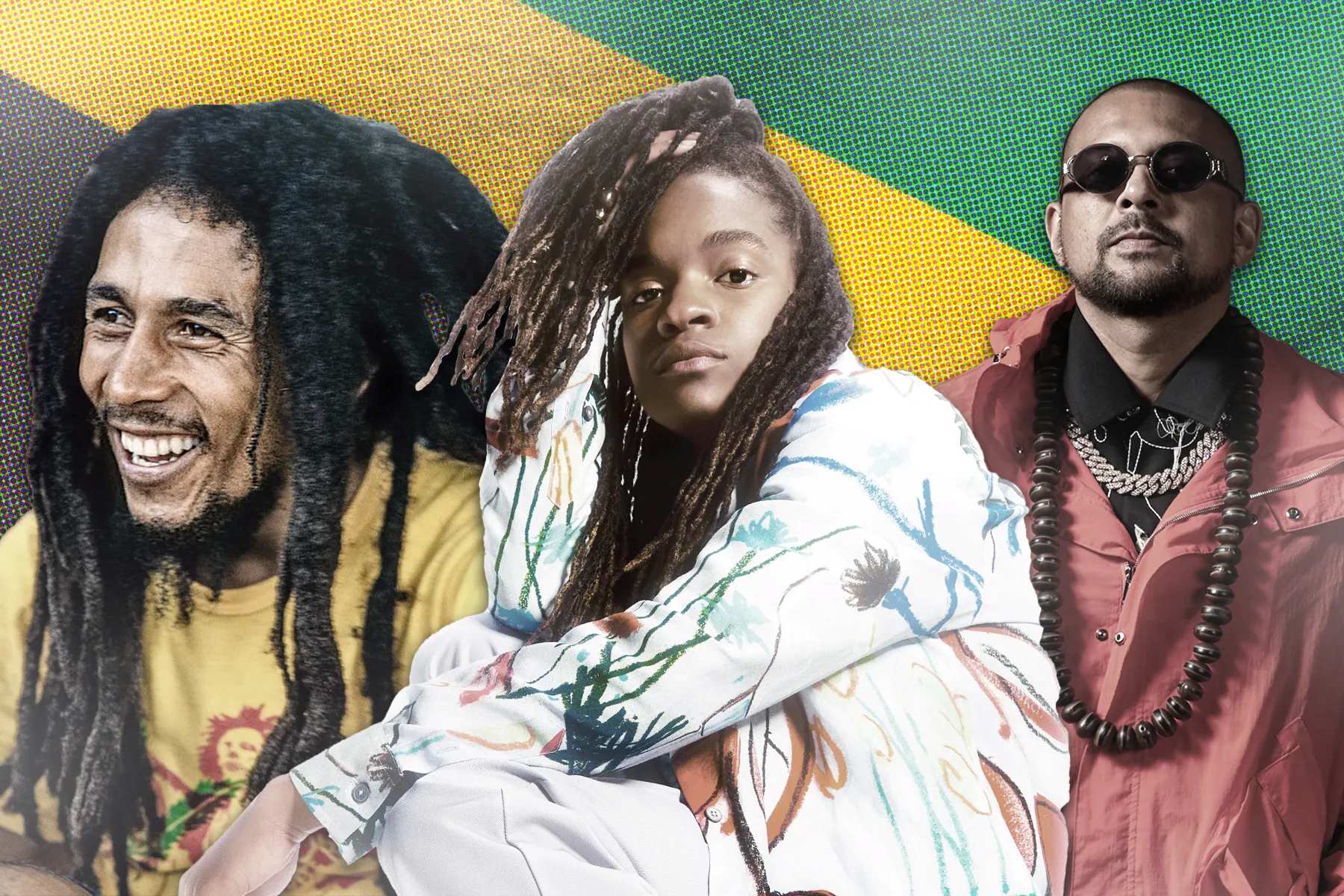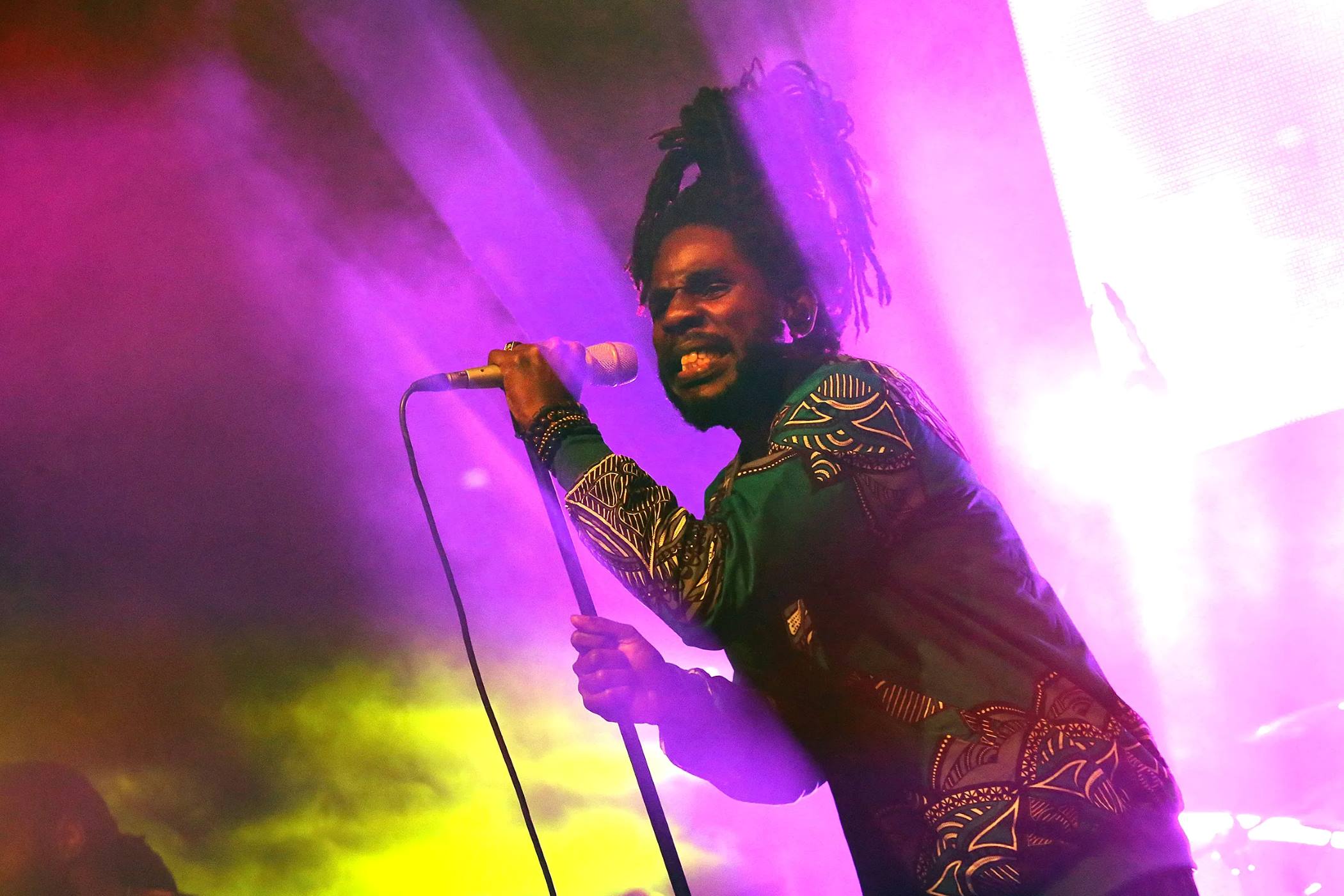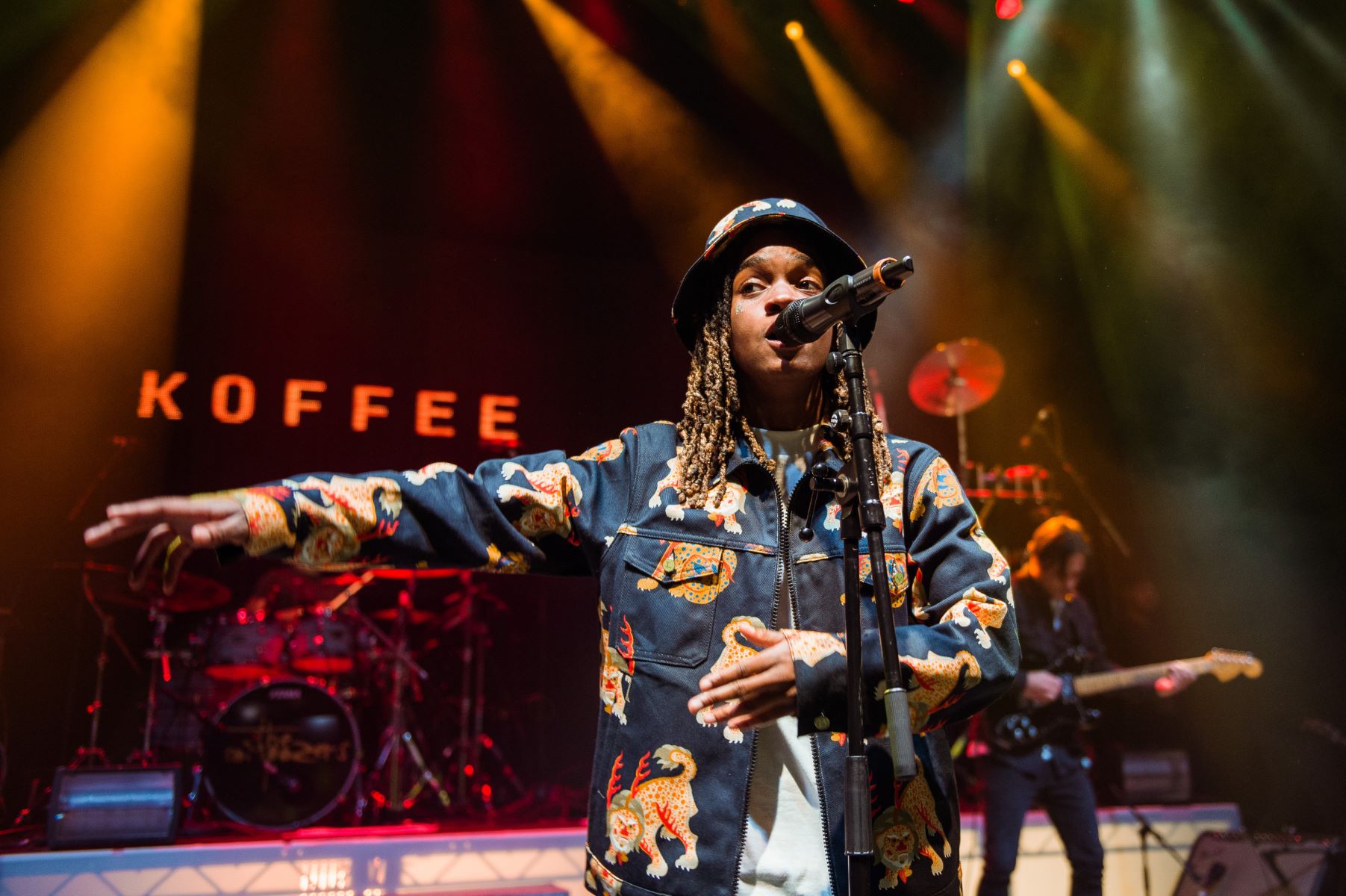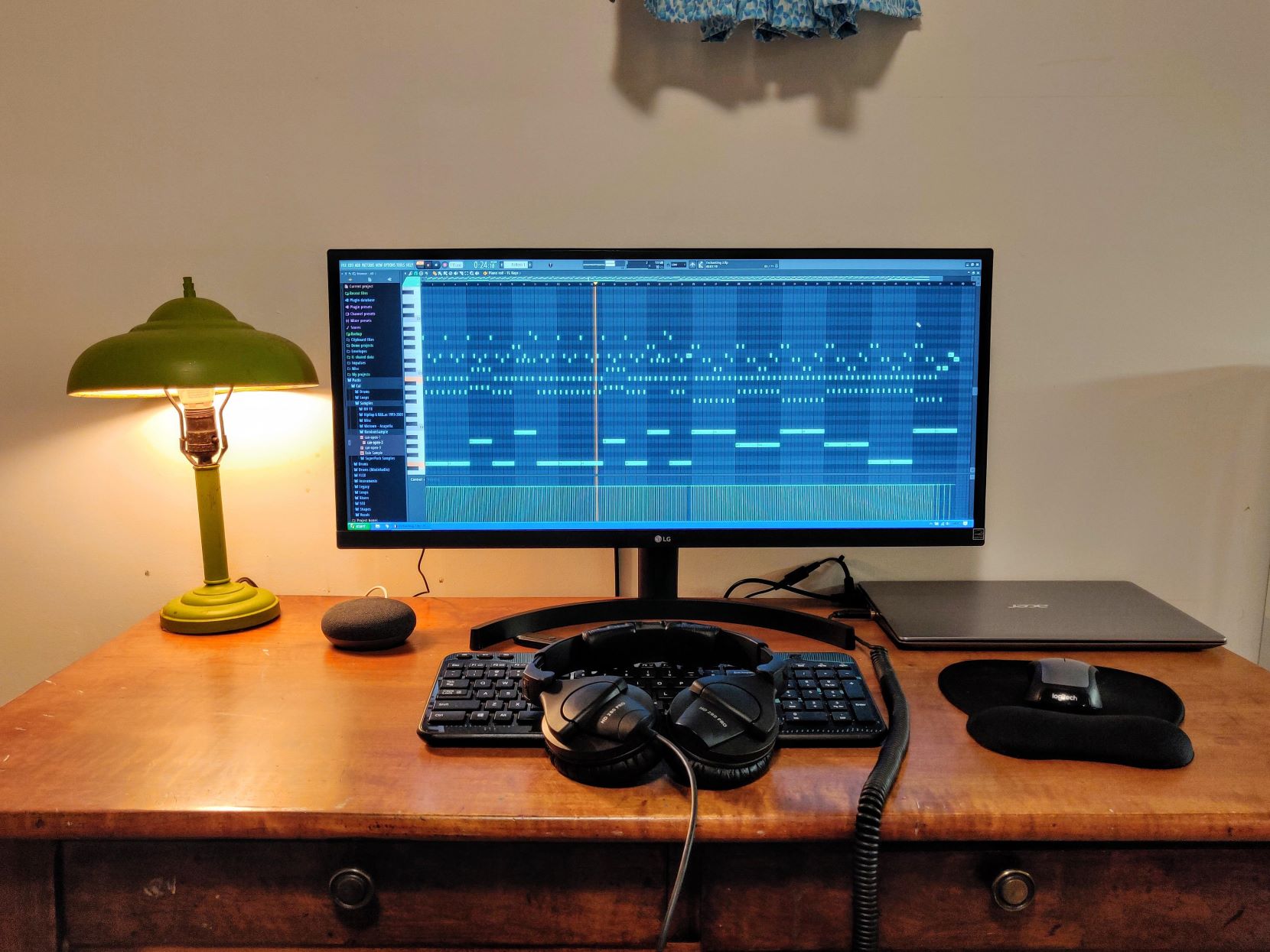Home>Genres>Reggae>How Is Rastafarianism Linked To Reggae Music
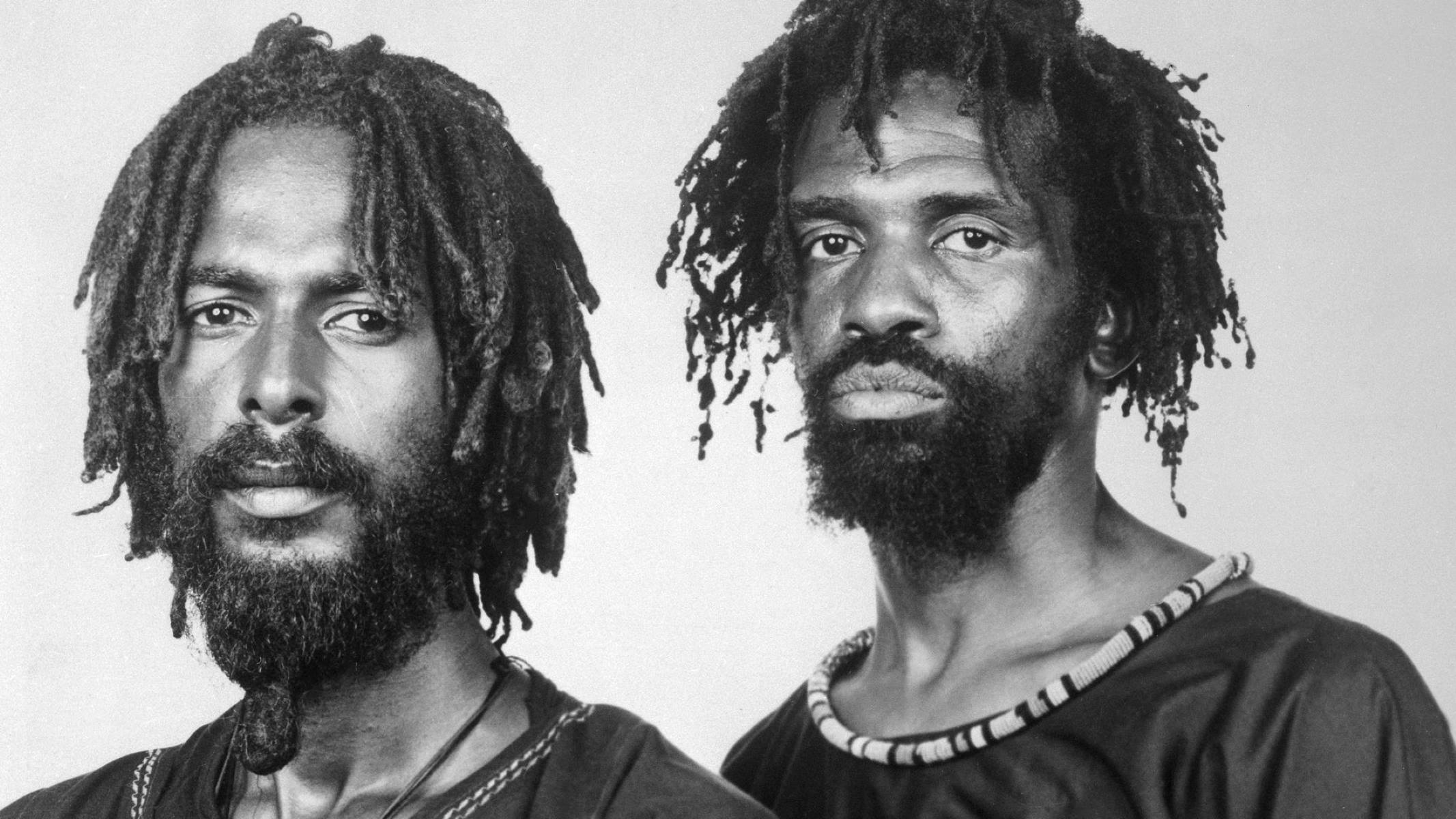

Reggae
How Is Rastafarianism Linked To Reggae Music
Modified: February 15, 2024
Discover the deep connection between Rastafarianism and the iconic genre of Reggae music, exploring its cultural roots and influence.
(Many of the links in this article redirect to a specific reviewed product. Your purchase of these products through affiliate links helps to generate commission for AudioLover.com, at no extra cost. Learn more)
Table of Contents
Introduction
Reggae music, with its infectious rhythms, soulful melodies, and powerful lyrics, has captivated audiences worldwide for decades. But what many people may not realize is that reggae is more than just music – it is a cultural movement deeply rooted in the beliefs and practices of Rastafarianism.
Rastafarianism, also known as Rastafari, emerged in Jamaica in the early 20th century and is often associated with the iconic figure of Bob Marley. However, the roots of this movement run much deeper, encompassing spiritual, social, and political ideologies that have shaped the history and identity of Jamaica.
The core tenets of Rastafarianism are based on the teachings of Marcus Garvey, a Jamaican political leader and proponent of black nationalism. Rastafarians believe in the divinity of Haile Selassie I, the former Emperor of Ethiopia, whom they revere as the messiah and the embodiment of God on Earth.
This belief in Selassie as a divine figure is central to Rastafarianism and has heavily influenced the development of reggae music. The spiritual and social messages conveyed through reggae lyrics reflect the Rastafarian worldview, promoting themes of equality, justice, love, and unity.
As we delve deeper into the connection between Rastafarianism and reggae music, we will explore the origins of Rastafarianism, its beliefs and practices, and how these elements have shaped the vibrant genre of reggae. We will also examine the rise of reggae artists who embraced Rastafarianism and the enduring influence of these beliefs on reggae music today.
Join us on this journey into the heart and soul of reggae music, where the rhythms of the drums, the echoes of the bass, and the poetic words come together to create a powerful and transformative experience.
Origins of Rastafarianism
Rastafarianism has its roots in the social and political climate of early 20th century Jamaica. It emerged as a response to the oppression and discrimination faced by black Jamaicans under colonial rule. The movement was heavily influenced by the teachings of Marcus Garvey, a Jamaican leader and advocate for the empowerment of black people.
Marcus Garvey’s message of black pride, self-determination, and the repatriation of Africans to their ancestral homeland resonated deeply with many Jamaicans. His call for unity and liberation struck a chord, particularly among the marginalized and disenfranchised black population.
It was during this time that the charismatic figure of Haile Selassie I came to prominence. In 1930, Selassie was crowned Emperor of Ethiopia, a nation that was seen by many Rastafarians as their promised land. They believed that Selassie’s coronation was the fulfillment of biblical prophecies, with Selassie being the long-awaited messiah.
This belief in the divinity of Haile Selassie became the cornerstone of Rastafarianism. Rastafarians saw themselves as the chosen people, the true descendants of the ancient Israelites, who were wrongly enslaved and oppressed throughout history. They viewed Selassie as their savior, sent by God to lead them out of bondage and into a new era of freedom and equality.
Garvey’s teachings, combined with the belief in Selassie as the messiah, inspired a new sense of identity and purpose among Jamaicans. The Rastafarian movement became a powerful force for social change, advocating for the rights and upliftment of black people.
One of the key elements of Rastafarianism is the rejection of mainstream Western society and its materialistic values. Rastafarians see Babylon, a term used to refer to the oppressive system of white supremacy and capitalism, as the source of their oppression. They strive to live a simple and self-sufficient lifestyle, focusing on natural and holistic practices.
As Rastafarianism gained momentum, its influence spread beyond Jamaica to other parts of the Caribbean and the world. The movement’s powerful message of liberation, spirituality, and cultural pride captured the imagination of many, and its impact can still be felt today.
Beliefs and Practices of Rastafarianism
Rastafarianism is a rich and complex belief system that encompasses spiritual, social, and cultural elements. At the core of Rastafarianism are a set of beliefs and practices that shape the daily lives and worldview of its followers.
One of the central beliefs of Rastafarianism is the divinity of Haile Selassie I, whom Rastafarians refer to as Jah or Jah Rastafari. They believe that Selassie is the messiah prophesied in the Bible, specifically in the book of Revelation. For Rastafarians, Selassie represents the embodiment of God on Earth and the rightful ruler of humanity.
Rastafarianism places a strong emphasis on spirituality, with followers engaging in regular prayer, meditation, and scripture study. The Holy Piby, a sacred text that combines biblical teachings with Rastafarian interpretations, is often used as a guide for spiritual reflection and understanding.
The concept of Babylon is central to Rastafarian beliefs. Babylon refers to the oppressive systems of white supremacy, capitalism, and imperialist control. Rastafarians see Babylon as an obstacle to their liberation and view themselves as the true Israelites, enslaved and oppressed throughout history.
Another prominent belief in Rastafarianism is the idea of repatriation. Rastafarians believe that they should return to their ancestral homeland in Africa, particularly Ethiopia, which they see as their promised land. This belief in repatriation goes hand in hand with the rejection of Western society and its values, as Rastafarians seek to create their own autonomous communities focused on African heritage and principles.
Practically, Rastafarians follow a strict set of dietary guidelines known as Ital. The Ital diet consists of natural and organic foods, avoiding processed or chemically-altered substances. This diet reflects the Rastafarian commitment to a healthy and harmonious lifestyle, connecting the mind, body, and spirit.
Rastafarians often adorn themselves with natural hairstyles, such as dreadlocks, as a symbol of their connection to Africa and their rejection of Western standards of beauty. This practice is also seen as a way to honor and maintain the hair as a sacred part of the body.
Social activism and community involvement are integral to Rastafarianism. Rastafarians are known for their advocacy of equality, justice, and human rights. They have been vocal in their opposition to racism, poverty, and other forms of oppression, actively working towards a more equitable and just society.
Overall, Rastafarianism is a belief system that seeks to empower its followers through spirituality, cultural pride, and a commitment to social change. The principles and practices of Rastafarianism have had a profound influence not only on reggae music but on social movements and cultural expressions around the world.
Influence of Rastafarianism on Reggae Music
The influence of Rastafarianism on reggae music cannot be overstated. The spiritual and cultural beliefs of Rastafarianism have shaped and infused the genre with its distinct sound, lyrical themes, and social consciousness.
Rastafarianism brought a renewed sense of identity and pride to Jamaican musicians, who saw reggae music as a means of expressing their spirituality, social commentary, and cultural heritage. The messages of empowerment, social justice, and liberation that are central to Rastafarianism became the foundation of reggae music.
One of the key elements of reggae music influenced by Rastafarianism is the iconic sound of the bass guitar. The deep, rhythmic bass lines in reggae reflect the heartbeat of the Rastafarian movement, grounding the music in a sense of strength and foundation.
Lyrically, reggae songs often address social and political issues, drawing inspiration from Rastafarian teachings. The themes of inequality, oppression, and the search for spiritual salvation are recurring motifs in reggae music, echoing the beliefs and struggles of the Rastafarian community.
Reggae lyrics also incorporate biblical references and Rastafarian terminology. The use of biblical stories and characters, such as Moses, David, and Babylon, infuses reggae music with a spiritual depth and resonance. Rastafarian terms, such as “Jah” (God), “I and I” (a way of acknowledging the oneness of all beings), and “Babylon” (oppressive systems), have become integral parts of reggae music’s lexicon.
The rhythmic patterns in reggae music, with their syncopated beats and offbeat accents known as the “one drop,” are influenced by traditional African music and reflect the African heritage celebrated by Rastafarianism.
Moreover, the reggae genre became a platform for spreading Rastafarian ideals and raising awareness about social issues. Artists like Bob Marley, Peter Tosh, and Burning Spear used their music to advocate for justice, equality, and the rights of the marginalized. Through their lyrics, they sought to inspire a sense of consciousness and provoke positive change.
The profound influence of Rastafarianism on reggae music has not only created a distinct genre but has also given rise to a global movement. Reggae music has become a universal voice for the oppressed and a medium to spread messages of love, unity, and resistance to Babylon.
To this day, Rastafarianism continues to be an integral part of the reggae music scene, influencing both aspiring and established artists. The spiritual, social, and cultural teachings of Rastafarianism serve as a guiding force, ensuring that reggae remains a powerful form of expression and a vehicle for positive change.
Rastafarianism and the Rise of Reggae Artists
Rastafarianism played a pivotal role in the rise of reggae artists, shaping their music, beliefs, and cultural identity. Many iconic reggae musicians embraced Rastafarianism, becoming ambassadors for the movement and using their platform to spread its messages and values.
Bob Marley, undoubtedly the most renowned reggae artist, is synonymous with Rastafarianism and its influence on reggae music. Marley’s deep-rooted faith in Jah and his commitment to social justice were evident in his lyrics, which reflected the struggles and aspirations of the Rastafarian community.
Marley’s album, “Exodus,” released in 1977, solidified his status as a global icon and brought Rastafarianism into the mainstream consciousness. Songs like “One Love,” “Exodus,” and “Jamming” became anthems for unity, love, and resistance against oppression, resonating with listeners worldwide.
Peter Tosh, another prominent figure in the reggae industry, was a passionate advocate for Rastafarianism and its principles. Tosh’s powerful and rebellious songs, such as “Legalize It” and “Equal Rights,” challenged societal norms and called for equality, justice, and the decriminalization of marijuana, which is considered a sacrament in Rastafarian practices.
Burning Spear, known for his distinctive vocals and profound lyrics, also embraced Rastafarianism. His music embodied the spirituality and cultural heritage of Rastafarian teachings. Songs like “Marcus Garvey” and “Slavery Days” celebrated black pride and highlighted the history of oppression endured by African people.
These are just a few examples of reggae artists who found inspiration in Rastafarianism and incorporated its beliefs and principles into their music. Their popularity and influence helped to raise awareness and understanding of Rastafarianism, transcending geographical boundaries and cultural barriers.
Rastafarianism not only impacted individual artists but also influenced the reggae music industry as a whole. The music became a powerful tool for expressing the hopes, struggles, and aspirations of the Rastafarian community, resonating with listeners who could identify with its message of liberation and social change.
Furthermore, the rise of reggae artists embracing Rastafarianism sparked a global interest in Jamaican culture and the movement itself. Reggae festivals and concerts, such as the legendary “Reggae Sunsplash,” showcased the rich cultural heritage of Rastafarianism, attracting audiences from around the world.
Today, Rastafarianism continues to inspire a new generation of reggae artists, who carry on the legacy of their predecessors. Their music serves as a conduit for the teachings of Rastafarianism, preserving its values and spreading its influence to new audiences.
The profound connection between Rastafarianism and the rise of reggae artists highlights the symbiotic relationship between music and spirituality. Rastafarianism has provided a foundation for reggae music, giving it a spiritual and cultural resonance that has made it a global phenomenon.
Themes and Symbolism in Reggae Music Related to Rastafarianism
Reggae music is renowned for its powerful themes and symbolism, often inspired by the beliefs and practices of Rastafarianism. These themes and symbols serve as a means of conveying the spiritual, social, and cultural messages of the Rastafarian movement within the context of reggae music.
One of the prominent themes in reggae music related to Rastafarianism is the quest for liberation and freedom. Rastafarians view themselves as a marginalized and oppressed group, seeking liberation from the chains of Babylon – the system of injustice and inequality. Songs like Bob Marley’s “Redemption Song” and Peter Tosh’s “Get Up, Stand Up” resonate deeply with listeners, inspiring them to rise against oppression and strive for their own freedom.
The concept of “Babylon” is a recurring symbol in reggae music and reflects the Rastafarian belief in the oppressive structures of society. The term “Babylon” references the systems of racism, capitalism, and imperialism that perpetuate inequality and subjugation. Through their lyrics, reggae artists challenge the realities of Babylon and call for its dismantlement, advocating for a world rooted in justice, equality, and love.
Rastafarian symbolism is often intertwined with biblical references, reflecting their belief in the divinity of Haile Selassie and the teachings of the Bible. The Lion of Judah, a symbol associated with Selassie and his lineage, is widely used in reggae album art, stage design, and clothing. It represents strength, dignity, and the power of the Rastafarian movement.
Dreadlocks, another iconic symbol associated with Rastafarianism, are often donned by reggae artists as a symbol of their spiritual connection and commitment to African roots. The uncut, matted hair represents a natural and holistic lifestyle, reflecting the rejection of Western beauty standards and the embracing of one’s authentic self.
The colors red, gold, and green are significant symbols in reggae music, embodying the Rastafarian flag. Each color holds its own meaning – red represents the bloodshed of the martyrs, gold symbolizes the wealth and resources of Africa, and green symbolizes the beauty and fertility of the land. These colors can be seen in the attire and stage decorations of reggae artists, and they serve as a reminder of Rastafarian identity and resistance.
The concept of “I and I” is another important theme in reggae music related to Rastafarianism. “I and I” is used to acknowledge the oneness and interconnectedness of all beings. It represents the unity of humanity and emphasizes the equality and love that should be fostered among individuals and communities.
Reggae music also addresses social issues such as poverty, racism, and inequality. Songs like “Concrete Jungle” by Bob Marley and “Downpressor Man” by Peter Tosh shed light on the struggles faced by marginalized communities and call for empathy and action.
Through the themes and symbolism in reggae music, Rastafarianism finds expression and reaches a broader audience. The messages of spiritual awakening, social justice, and cultural pride resonate not only with Rastafarians but with people from all walks of life who are inspired by the power and depth of reggae music.
Rastafarianism and Reggae Music Today
Rastafarianism continues to have a profound impact on reggae music in the present day, both in Jamaica and around the world. The spiritual, social, and cultural teachings of Rastafarianism remain a significant influence, shaping the sound, themes, and messages of contemporary reggae music.
Many reggae artists today continue to embrace Rastafarianism, infusing their music with its principles and values. They use their platform to raise awareness about social injustices, advocate for equality, and promote messages of love, unity, and spirituality.
Reggae festivals and concerts, such as Jamaica’s “Reggae Sumfest” and the “Rototom Sunsplash” in Spain, showcase the enduring connection between Rastafarianism and reggae music. These events bring together artists, musicians, and reggae enthusiasts from all over the world, celebrating the rich cultural heritage and spiritual essence of Rastafarianism.
The legacy of Bob Marley, a devout Rastafarian, continues to inspire reggae artists and listeners alike. Marley’s music remains timeless, resonating with new generations and serving as a catalyst for social change. His iconic status as a musical and spiritual leader has solidified the association between Rastafarianism and reggae in the public consciousness.
Additionally, reggae subgenres like “Roots Reggae” and “Conscious Reggae” continue to draw inspiration from Rastafarian teachings. Artists like Chronixx, Protoje, and Jah9 are keeping the flame of Rastafarianism alive through their music, addressing contemporary social issues and spreading messages of spirituality and empowerment.
The influence of Rastafarianism on reggae music can also be seen in other genres, with artists like Sizzla, Buju Banton, and Damian Marley infusing elements of Rastafarian beliefs into their dancehall and fusion music. This demonstrates the universality and adaptability of Rastafarian principles in various musical landscapes.
Rastafarianism has also made its way into popular culture, beyond the realm of music. The iconic symbols and imagery associated with Rastafarianism, such as the Ethiopian flag, dreadlocks, and the Lion of Judah, have become recognizable symbols internationally.
Furthermore, the Rastafarian movement continues to evolve and adapt to modern challenges. It actively engages in community development projects, environmental conservation efforts, and social activism, continuing its commitment to social justice and empowerment.
As reggae music continues to evolve and expand its influence globally, Rastafarianism remains an integral part of its fabric. The spiritual, cultural, and social principles of Rastafarianism continue to inspire artists and listeners alike, serving as a guiding force in the creation and appreciation of reggae music today.
Conclusion
The inseparable connection between Rastafarianism and reggae music is a testament to the profound influence of spirituality, culture, and social consciousness in shaping a genre that transcends musical boundaries. Rastafarianism, with its teachings of liberation, equality, and African heritage, provided the foundation for reggae music to become a transformative force.
From its origins in the hills of Jamaica to its global reach, reggae music carries the echoes of Rastafarianism, resonating with millions of listeners who connect with its messages of hope, unity, and resistance. The belief in Haile Selassie as the messiah, the rejection of Babylon, and the call for social justice permeate the rhythms, lyrics, and symbolism of reggae music.
The rise of reggae artists who embraced Rastafarianism, such as Bob Marley, Peter Tosh, and Burning Spear, amplified the voice of the movement, spreading its ideals and inspiring generations. Their music became a platform for activism, a vessel for expressing the struggles and aspirations of the Rastafarian community, and a beacon of hope for marginalized individuals and oppressed communities.
The themes and symbolism in reggae music related to Rastafarianism continue to create a powerful cultural legacy. They address social issues, advocate for change, and celebrate the resilience of the human spirit. Reggae festivals, concerts, and the works of contemporary artists keep the flame of Rastafarianism alive, ensuring its continued influence on the genre.
Furthermore, Rastafarianism’s impact extends beyond music, influencing fashion, art, and popular culture. The dreadlocks, colors of the Rastafarian flag, and the concepts of “I and I” and Babylon have become recognizable symbols internationally, representing the struggle for liberation and the pursuit of equality.
As we navigate the present and look towards the future, the teachings and principles of Rastafarianism will continue to guide reggae music. Artists and listeners alike will carry the torch of spirituality, social justice, and love, using reggae as a medium for positive change and collective empowerment.
In essence, the connection between Rastafarianism and reggae music represents a profound synergy of culture, spirituality, and activism. It is a testament to the enduring power of music to inspire, uplift, and unite people across borders and generations. Through the rhythms of reggae and the teachings of Rastafarianism, we are reminded of our shared humanity and the capacity we possess to create a more just and harmonious world.

